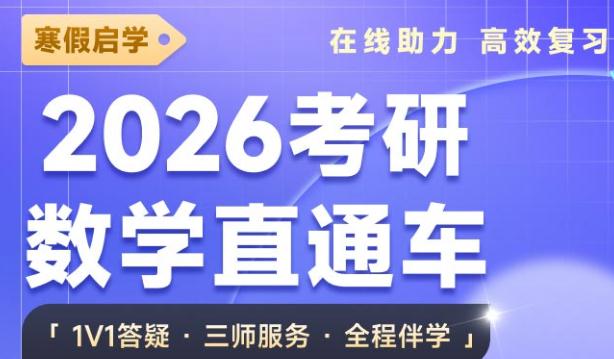1998-2022 ChinaKaoyan.com Network Studio. All Rights Reserved. 沪ICP备12018245号
2016完美·体育(中国)官方网站,WANMEI SPORTS英语阅读热点:中国收紧资本管制 遏制资本外流
China has tightened its capital controls, in a sharpreversal of its market liberalising rhetoric, as itstruggles to contain the fallout from last month’s devaluation of the renminbi.
中国已采取措施收紧资本管制,此举标志着官方的市场自由化言论发生急剧逆转。目前中国正艰难围堵上月人民币贬值的余波。
The August 11 devaluation unleashed turmoil on global stock markets and policy confusionat home, forcing the central bank to spend as much as $200bn to support the renminbi. Theprospect of an interest rate rise in the US has further encouraged capital flight.
8月11日的贬值引发全球股市动荡,并在国内造成政策困惑,迫使中国央行支出多达2000亿美元支持人民币。美国加息的前景进一步鼓励了资本外流。
The State Administration of Foreign Exchange, the unit of the central bank in charge ofmanaging China’s currency, has in recent days ordered financial institutions to step up checksand strengthen controls on all foreign exchange transactions, according to people familiar withthe matter and an official memo seen by the Financial Times.
根据几名知情人士的说法和英国《金融时报》看到的一份官方通知,隶属中国央行、负责管理中国外汇的国家外汇管理局(SAFE)近日责令各金融机构加强对所有外汇交易的检查和管制。
Safe has ordered banks and financial institutions to pay particular attention to the practice ofover-invoicing exports, used to disguise large capital outflows. Safe confirmed the existenceof the memo, but declined to comment further.
国家外管局责令银行和金融机构要特别留意高报出口的做法,这种做法被用来掩盖大笔资本外流。该局证实上述通知的存在,但拒绝进一步置评。
China has long imposed limits on the amount of foreign exchange that can be bought or soldby individuals and companies but those controls have broken down somewhat in recent yearsas the renminbi has become more widely used around the world.
中国长期对个人和企业可以购买或出售的外汇金额实行限制,但随着人民币在世界各地得到更为广泛的使用,这些管制近年在一定程度上失效。
Wang Tao, chief China economist at UBS, said the government had been expected to tightensome FX controls. But relying on them exclusively to protect the renminbi “will not be viableover the long term and hence is unlikely to be pursued by China’s central bank for long”, sheadded.
瑞银(UBS)首席中国经济学家汪涛表示,外界早就预期政府会收紧某些外汇管制。但她补充说,仅仅依赖这些管制来捍卫人民币“不是长久之计,因而中国央行不会长期实行这些管制”。
The policy reversal comes after China’s central bank drew heavily on its vast foreign exchangereserves to prevent the renminbi falling dramatically against the dollar in the wake of thetechnical devaluation last month. Although still the largest in the world, its reserves fell by thebiggest amount on record in August, dropping $94bn to around $3.56tn.
这项政策逆转出台之前,中国央行大举动用其庞大的外汇储备,以防止上月技术性贬值后人民币兑美元汇率大幅下滑。虽然中国的外汇储备仍是全球最大的,但8月份出现有记录以来最大数额的缩水,减少940亿美元,至3.56万亿美元。
For the first time since it began internationalising its currency a few years ago, the central bankhas also been intervening heavily in the offshore renminbi market to narrow the gap betweenthe onshore (CNY) and offshore (CNH) exchange rates.
自几年前开始推动人民币国际化以来,中国央行还首次大举干预离岸人民币市场,以缩小在岸人民币(CNY)与离岸人民币(CNH)汇率之间的差距。
Analysts and people familiar with the matter say Beijing has spent up to $200bn defending thecurrency but the net impact on the reserves is disguised by fluctuating valuations of reserveassets and other inflows into the reserves.
分析师和知情人士透露,北京方面已投入多达2000亿美元捍卫人民币,但外汇储备所受的净影响被各种因素掩盖,包括储备资产的估值变动和流入储备的其他资金。
“They have gone from a credible peg that cost them almost nothing to a weak peg thatnobody believes and that is costing them more than $10bn a day to defend — they’re payinghuge sums for something they had for free just a few weeks ago,” said one person with closeties to China’s central bank.
“他们从一个几乎不用花钱的可信的盯住汇率,沦为一个没人相信的疲弱盯住汇率,每天要动用超过100亿美元捍卫——他们正为几周前还免费拥有的东西付出高额代价,”与中国央行关系密切的一位人士表示。
来源未注明“中国完美·体育(中国)官方网站,WANMEI SPORTS网”的资讯、文章等均为转载,本网站转载出于传递更多信息之目的,并不意味着赞同其观点或证实其内容的真实性,如涉及版权问题,请联系本站管理员予以更改或删除。如其他媒体、网站或个人从本网站下载使用,必须保留本网站注明的"稿件来源",并自负版权等法律责任。
来源注明“中国完美·体育(中国)官方网站,WANMEI SPORTS网”的文章,若需转载请联系管理员获得相应许可。
联系方式:chinakaoyankefu@163.com
- 2026完美·体育(中国)官方网站,WANMEI SPORTS英语全程班 寒假班
- 权威高配师资亲授技巧,教研千锤百炼科学提分。直录播课相结合精讲互动二合一,专业团队精细化作文批改。讲练结合,随学随练稳步提升。支持试听~
- 主讲团队:王江涛、谭剑波、董仲蠡、许聪杰、陈志超、潘赟、郑艳彤、易熙人
- 2026年完美·体育(中国)官方网站,WANMEI SPORTS英语参考书目/教材/书单推荐
- 2025完美·体育(中国)官方网站,WANMEI SPORTS英语参考书目/教材/书单推荐
- 2022完美·体育(中国)官方网站,WANMEI SPORTS英语的国家线大概会在2-5分内浮动
- 吉林大学关于公布2021-2022学年研究生外语分级考试成绩的通知
- 2022完美·体育(中国)官方网站,WANMEI SPORTS英语(二):大纲考点变化解析指导
- 2022完美·体育(中国)官方网站,WANMEI SPORTS英语大纲和2021完美·体育(中国)官方网站,WANMEI SPORTS英语大纲对比说明
- 2021完美·体育(中国)官方网站,WANMEI SPORTS英语考试多长时间?
- 2021完美·体育(中国)官方网站,WANMEI SPORTS英语作文模板:推荐信
- 2021完美·体育(中国)官方网站,WANMEI SPORTS英语:阅读为重中之重
- 2021完美·体育(中国)官方网站,WANMEI SPORTS英语:阅读理解错的多怎么办?
- 2026完美·体育(中国)官方网站,WANMEI SPORTS英语全程班 早鸟2班
- 2026完美·体育(中国)官方网站,WANMEI SPORTS政治全程班 早鸟2班
- 2026完美·体育(中国)官方网站,WANMEI SPORTS数学全程班 早鸟2班
- 2026完美·体育(中国)官方网站,WANMEI SPORTS英语直通车 长线1期
- 2026完美·体育(中国)官方网站,WANMEI SPORTS政治直通车 长线1期
- 2026完美·体育(中国)官方网站,WANMEI SPORTS数学直通车 长线1期
- 2026完美·体育(中国)官方网站,WANMEI SPORTS英语全程班 寒假班
- 2026完美·体育(中国)官方网站,WANMEI SPORTS政治全程班 寒假班
- 2026完美·体育(中国)官方网站,WANMEI SPORTS数学全程班 寒假班
- 山东大学432统计学全套完美·体育(中国)官方网站,WANMEI SPORTS资料
- 山东科技大学817管理学完美·体育(中国)官方网站,WANMEI SPORTS资料
- 浙江师范大学936物理化学完美·体育(中国)官方网站,WANMEI SPORTS复习资
- 浙江大学855环境学完美·体育(中国)官方网站,WANMEI SPORTS复习资料
- 大连理工大学333教育综合完美·体育(中国)官方网站,WANMEI SPORTS复习资
- 沈阳大学346体育综合完美·体育(中国)官方网站,WANMEI SPORTS复习资料
- 大连大学848传热完美·体育(中国)官方网站,WANMEI SPORTS复习资料
- 大连民族大学338生物化学完美·体育(中国)官方网站,WANMEI SPORTS复习资料

扫码关注
了解完美·体育(中国)官方网站,WANMEI SPORTS最新消息












